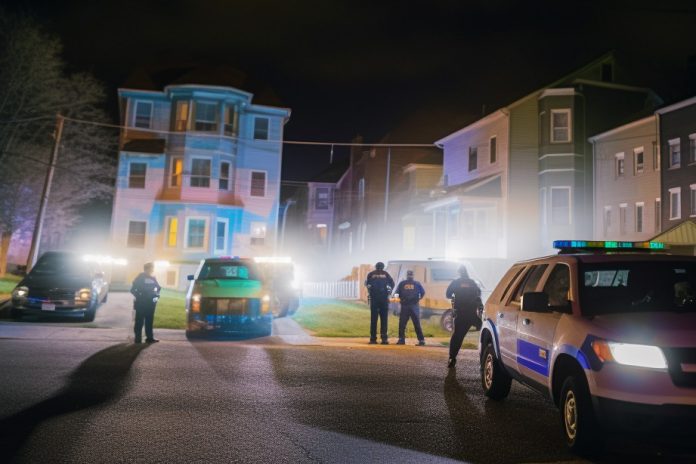In April 2022, a party at an Airbnb on the North Side of Pittsburgh turned deadly. Two teenagers were killed and several others injured in a shooting.
“Tyriale Neal and Dejonia Rosser have separately filed lawsuits against Airbnb and 900 North Group LLC, the company that owns the building on Madison Ave.
Ms. Neal, who was shot in the right leg during the incident, filed her lawsuit last June.
The complaint says in addition to the gunshot wound, she also suffered a shattered right femur, a dislocated right hip, scarring and mental and emotional harm.
Ms. Neal’s lawsuit was the first legal action taken against Airbnb and 900 North Group in the wake of the shooting.
Ms. Rosser filed her lawsuit in November. She fractured multiple bones in her right leg and injured both wrists when she jumped from a second-story window to escape the gunfire, according to her complaint.
Both lawsuits also name K&C Ventures as a defendant. They allege that this company rented the property from 900 North Group via Airbnb’s website.
The women’s lawsuits allege that Airbnb was aware that parties were regularly held at properties rented through their website and preventative steps should have been taken by the company and by 900 North Group to prevent any parties from happening there.”
In this article, we will take an in-depth look at the state of short-term rentals in Pittsburgh. We’ll examine the challenges facing policymakers and property owners. Also, The ongoing legal battles over the North Side shooting. This article originally appeared in the Pittsburgh Post Gazette.
The shooting at the North Side Airbnb in April 2022 added a new sense of urgency to the short-term rental debate. The incident claimed the lives of two teenagers and injured several others,. It was a stark reminder of the risks associated with unregulated short-term rentals.
This prompted calls for increased regulation of short-term rentals in the city. Lawmakers are pushing for the creation of a registry. They want to track and monitor these properties. Efforts to pass this law have stalled, leaving the city’s short-term rentals in limbo.
“When it was first introduced, the city council waived their regular rules. So that discussion could start sooner. Stressing that things needed to happen “sooner rather than later.
However, nearly a year later, the legislation remains on hold. A possible passage of the bill is at least three months away.”
The city of Pittsburgh, like many others, has experienced a surge in short-term rentals. Platforms like Airbnb have made it easier than ever for property owners to rent out their spaces. This has brought extra income and helped to drive economic growth in the city.
This growth has raised concerns about the safety and regulation of short-term rentals. Particularly in heavily populated areas like Pittsburgh’s North Side. As of 2021, there were an estimated 4,000 short-term rental units in the city. They generated an estimated $22 million in annual revenue.
As mentioned earlier the growth of the industry has been driven by the rise of online platforms. Airbnb and Vrbo, allow property owners to rent out their spaces easily. For many owners, short-term rentals have become an attractive source of supplemental income.
My properties in California and, Maui require I have a local representative and, a permit. Some Pittsburgh. lawmakers have proposed the same. They want to create a registry of short-term rentals in the city. The registry would require property owners to register their units with the city. It would also require contact information for a local representative. They would submit to regular inspections to ensure compliance with safety regulations. I think this is prudent given the state of vacation rentals in the US today.
The proposed registry has faced opposition from some property owners. These owners argue that it would be overly burdensome and expensive to comply with. Some have also expressed concerns that the registry could be used as a tool for harassment.
The efforts to regulate short-term rentals in Pittsburgh have also faced political obstacles. Some lawmakers have expressed concern the regulations could stifle the growth of the industry. That it would harm the city’s economy. Others argued that the city should focus on enforcement of existing regulations.
I believe it’s important for policymakers, property owners, and residents to work together. Efforts to regulate short-term rentals in Pittsburgh remain stalled. The future of the industry in the city remains uncertain. Some policymakers and residents continue to call for increased regulation. Others argue that the industry should grow and innovate without government interference.
The shooting at the North Side Airbnb in April 2022 was a stark reminder of the risks associated with unregulated short-term rentals.
You can read the original article at The Pittsburgh Post Gazette



Airbnb limits number of guests to 16 while calling over that limit a party.
Alaska log cabin, 2500 sq ft we call it a family get together/family reunion before both sets of grandparents get too old. We call it a wedding wishing the best of luck. We call it Alaska and pay attention to the State Troopers. This is not the lower 48. No games please.